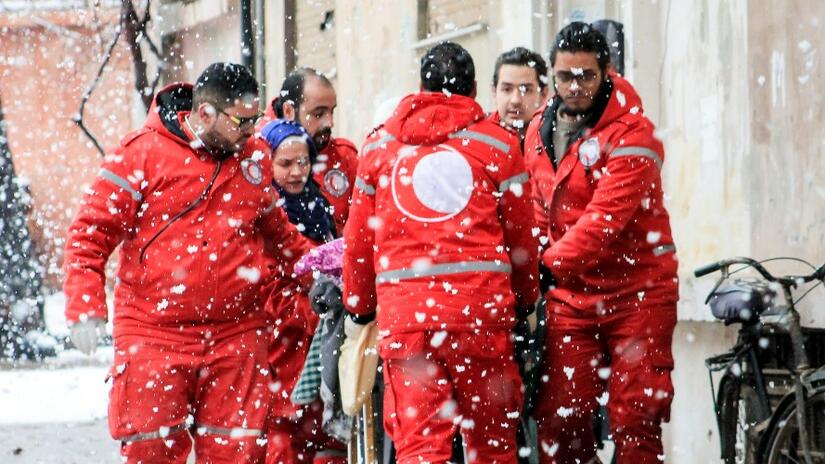About National Societies
The IFRC is made up of 191 Red Cross and Red Crescent Societies, often referred to as National Societies, present in nearly every country of the world. Their roles differ country by country, but they are all united by our Fundamental Principles and all strive for the good of humanity.
What are National Societies?
National Societies are the backbone of the International Red Cross and Red Crescent Movement. Each one is made up of an unparalleled network of community-based volunteers and staff who provide a wide variety of services.
The specific role of National Societies and the services they provide varies country by country. This is due to the different needs of communities, as well as the different relationships National Societies have with their respective authorities.
National Society volunteers are often first on the scene when a disaster strikes. And they remain active within affected communities long after everyone else has left. In some cases, National Societies are the only organizations able to operate in countries experiencing disasters, conflicts, or a collapse in their social fabric.
The auxiliary role

A team of medical workers from the Syrian Arab Red Crescent move a patient on a stretcher towards a waiting ambulance in the snow in Homs
Photo: Syrian Arab Red Crescent/Abdulaziz Al-droubi
National Red Cross and Red Crescent Societies are neither governmental institutions nor wholly separate non-governmental organizations (NGOs). Rather, they are auxiliaries to the public authorities in the humanitarian field.
This means they work in partnership with public authorities, based on international and national laws. Each National Society agrees with the authorities in its country on the areas in which it supports or substitutes public humanitarian services.
National Societies are independent at all times, They act impartially and neutrally, based solely on the basis of need. They must always work in accordance with the Fundamental Principles of the International Red Cross and Red Crescent Movement.
How we support National Societies
National Society Development
We directly support National Societies to improve their programmes, accountability, leadership, policies and systems. We foster peer to peer support and learning across our network. And we support the financial sustainability of members so they can continue to deliver effective humanitarian services long into the future.
Coordination and support in emergencies
Membership coordination is a core statutory obligation of the IFRC. During large-scale and protracted crises, or in fragile contexts, the IFRC may coordinate the strategic and operational response between National Societies. This helps increase our network’s efficiency so we can best support affected communities.
Global representation and advocacy
On behalf of our members and the communities they serve, the IFRC plays an important role in influencing global decision making on humanitarian affairs. We also support National Societies’ efforts to influence humanitarian agendas at the national level. At all times we advocate for people’s dignity and humanity.
